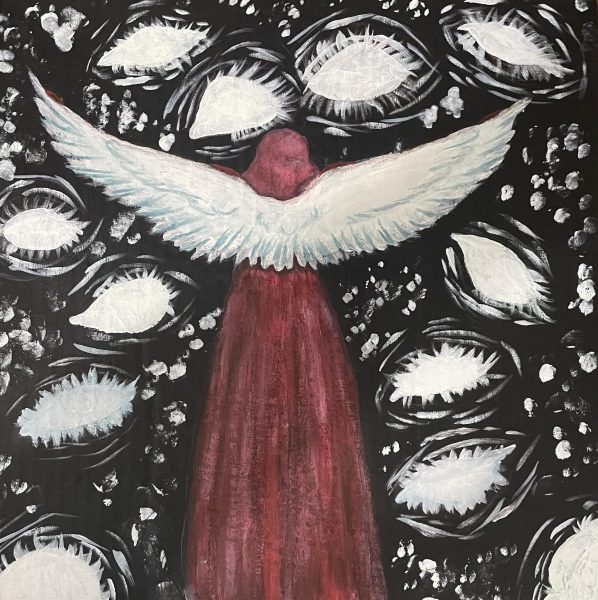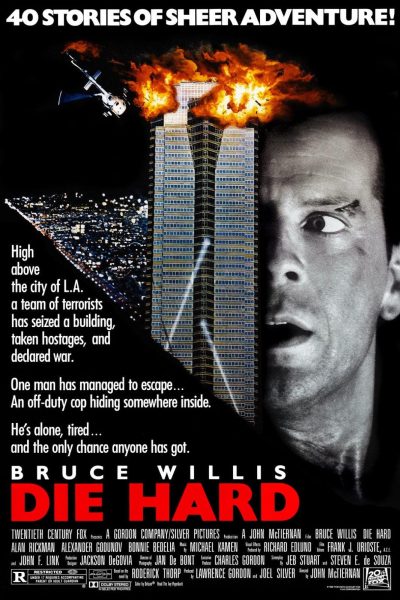Hollywood is poisoning today’s youth with bad influences
April 19, 2022
Hollywood has the reputation of making things seem better than they are. From dystopian battles to rom-coms, the industry never fails to make people jealous of characters in television shows and movies. Although the ultimate goal of this is entertainment, oftentimes the way Hollywood romanticizes certain situations does more harm than good.
The film industry is probably one of the biggest perpetrators of bad influences. Drugs and alcohol are both things that Hollywood tends to romanticize. Many movies and shows marketed to teenagers often include depictions of drugs and alcohol and how much “fun” they can be at parties. But what the industry often fails to capture is the awful and gruesome truth about what certain substances can do to the body.
Shows like “Euphoria,” “All American” and “Outer Banks,” all include depictions of drugs and alcohol in a party setting and although these shows sometimes highlight the after effects of these substances, they usually only show the fun and wild side, which may influence teens to participate in such acts. Drugs and alcohol are also often normalized in television shows, making it seem like everybody is doing them, which pressures teens even more to potentially also take them
Mental illness and eating disorders are often also shown in the media. Oftentimes, eating disorders are not depicted in the right way and only the results are shown, instead of the process. This may influence many teenagers to participate in dangerous activities in order to look like their favorite characters. Mental illness is also usually incorrectly depicted in the film industry. Not only are mental institutions often shown as “free for alls” and not properly portrayed as the dark and difficult places they are, but often shown as either lighthearted or even fun.
Shows and movies including “Dear Evan Hanson” and “13 Reasons why” incorrectly depict what living with mental illness is actually like. They make it seem less common than it is and also make it seem like being in a depressive state can be fun. This makes people who suffer from mental illness feel alienated and mocked for something they can not control.
Self-harm is also not properly portrayed in the film industry, as it is often not taken as seriously as it should be, or it is directly recorded, giving many viewers ideas on how to inflict harm on themselves. Many sensitive topics like this are skipped over or not taken seriously, but probably the most common issue that Hollywood tends to romanticize is toxic relationships.
Many shows and movies like “Euphoria,” “After,” “Twilight,” “Suicide Squad,” and even “Star Wars” depict toxic and controlling relationships where abuse is normalized. Most of these movies and shows are catered to children and give them a warped idea of what love is supposed to be.
A lot of the time, different kinds of abuse are often portrayed as love. Whether it be physical, mental, or emotional abuse, these kinds of mistreatments are shown in a way in which it seems like love, when in fact it is toxic and disturbing.
In shows like “You,” and “Euphoria” toxic relationships are shown as romantic and even desirable. “You” shows a man stalking a woman for her affection, which he ultimately receives with no repercussions. “Euphoria” depicts controlling and abusive relationships with many characters enduring mental, physical, and even emotional abuse including cheating and violence.
Manipulation in relationships is also heavily romanticized in the film industry. Majority of the time, female characters are shown as inferior to their male counterparts in relationships.
Movies like “After” really highlight the toxic and controlling side of a relationship and convinces vulnerable audiences that that is how love is. This poisons the minds and ideas of teenagers and even adults and can put people in extremely manipulative and dark relationships.
Not only does Hollywood show the manipulative side of relationships, but it often depicts abuse in relationships. Whether it be mental, physical, or emotional abuse. Many times, emotional and mental abuse is overlooked as it does not necessarily leave physical damage.
Other movies like “Twilight” show a weaker female lead that cannot resist male charm and is obsessed with him. The movie shows that the female lead cannot function without her male counterpart and depicts her as weak and reliant.
The popular show “Euphoria” also depicts toxic and controlling relationships and quite often shows couples arguing or having a purely sexual relationship. The show itself is rated T.V. MA, but the majority of the audience is teenagers who are still easily influenced and think that what they see on television. is what a relationship should be like.
Teenagers are some of the most impressionable people and are very easily influenced. The film industry tends to take advantage of teens and include mature material that can destroy their relationships with people, substances, and even themselves. Hollywood as a whole should want to positively influence their audiences and make it so more and more people are moved by their work. Overall, the romanticization of these types of relationships is toxic to the audience and needs to be stopped.













